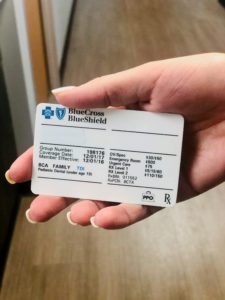Sound familiar? You go to your doctor, get a prescription, and then show up at the pharmacy to find out your medication is almost as much as your car payment! Frustrating, right?
Even more irritating and time consuming is the next step – you call the doctor’s office to ask for an alternative medicine, wait for a call back, and then wait again to find out the price of the new medication at the pharmacy. It’s the maddening-medicine-money cycle and it’s more common than you think.
The first thing to point out, the doctor’s office doesn’t always know what your cost will be for medications. They run benefits for your office visit, but prescriptions are done through a different part of your insurance. It’s easy to blame the doctor and trust me, the doctor’s office wishes they knew exactly what medication would be covered and the cost.
To avoid sticker shock, here are three Centsible things you can do before seeing your doctor:
1. Get a copy of your Formulary which is a list of all drugs covered by your prescription plan. It usually lists what “tier” the medication is so that you have an idea of the cost. Your Formulary should be accessible on your online insurance account or you can call and request one. If you bring this with you to the doctor’s office, they can see if that medication is covered before you leave.
2. If you are unable to get a list of your Formulary, then ask the doctor a couple of questions before leaving.
“Is the medication generic or branded?”
“Is there a generic alternative?”
“If branded, what are the alternatives in case this medication is not covered?”
If you have a list of the alternatives, you can call your insurance company and ask which of the
medication will be cheaper on your plan.
3. Always ask at the doctor’s office if there is a discount card for the medication. Discount cards are only used for commercial insurance and are not allowed on governmental plans. If the doctor doesn’t have a discount card, check online on the medication’s website and you can print one. Discount cards work after your insurance and help lower the copay. Not all medications have this but it is worth it to check.
Hope these Centsible tips can help you save some money on medications and avoid frustration!
Disclaimer: The information on this blog is for educational and informational purposes only. This information may not apply to every insurance plan. You must always check with your specific insurance for any advice. For any medical advice you must always consult a physician or other health care provider.





Tena
12 Jan 2021Lots of great information here!